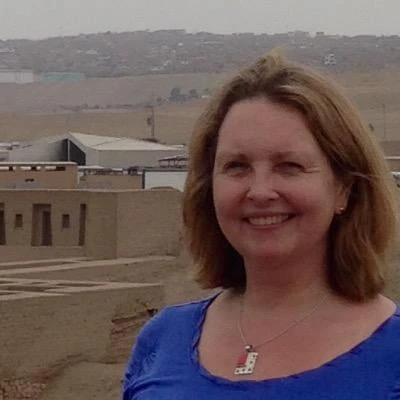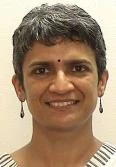 The 2017 Global Findex survey found that 45% of women in Low Income Countries (LICs) do not have an ID compared to 30% of men. Woman selling peanuts in Nigeria. Photo: World Bank
The 2017 Global Findex survey found that 45% of women in Low Income Countries (LICs) do not have an ID compared to 30% of men. Woman selling peanuts in Nigeria. Photo: World Bank
Globally, an estimated 1 billion people do not have an official ID—of these, the majority are women. The 2017 Global Findex survey found that 45% of women in Low Income Countries (LICs) do not have an ID compared to 30% of men. In today’s world, without gender equality in access to identification governments will struggle to ensure universal access to basic services, economic opportunities, and fulfillment of rights and protections, and to empower women to participate fully in the digital economy.
ID4D study on gender barriers in Nigeria
The World Bank’s ID4D Initiative completed an extensive qualitative research study in Nigeria to help develop a comprehensive understanding of gendered experiences and women’s needs with regard to ID . Nigeria presents a key opportunity to better understand the intersectionality of barriers faced by women and marginalized groups in accessing an ID and to develop evidence-based solutions that can be directly incorporated into the country’s planned reforms to make the national ID system more inclusive for all.
For the study, over 1,500 Nigerian participated in focus group discussions (FGDs) and interviews conducted across 36 rural and urban local government areas (LGAs) located in 12 states, covering Nigeria’s six geopolitical zones. FGDs were stratified by gender, urban/rural residence, and age group, and included special group discussions with IDPs, pastoralists, and persons with disabilities.
Findings
The study found that men and women across all age groups were aware of the national ID, but their knowledge is basic, uneven, and sometimes incorrect. Many, but not all, male and female respondents thought men needed the ID more than women and there was often confusion about what the ID is used for.
Barriers in obtaining an ID, such as the high cost of transport, lack of documentation, or loss of income due to long waiting times, were exacerbated for poor and marginalized women. For example, women often had to seek permission from husbands or fathers to leave the house or were unable to leave for long periods of time due to childcare and household chores. Additionally, in some communities social norms created barriers to registration for women, such as concerns about gender-mixed spaces, unveiling for photographs or physical contact required to capture fingerprints. (Read the full report)
Community solutions
Nigerian participants proposed a number of solutions that could lift barriers faced by women and marginalized groups as well as the population at large:
- Assess prevailing cultural, social, and religious norms in the community to determine appropriate policies for encouraging women’s enrollment (like hiring female registration agents, separate registration for women and men).
- Launch a national awareness raising campaign and identify channels that work best for different groups, especially vulnerable ones—for example, word of mouth and information from trusted interlocutors (civic and religious leaders, women’s leaders, and other respected member of the community) was preferred overall, especially by women while SMS and social media were preferred by youth.
- Ensure male and female leaders proactively and publicly promote women’s registration and employ female leaders who are active in communities to reach women with restricted mobility and limited access to information.
- Engage leaders to proactively promote registration for persons with disabilities and other marginalized groups – draw on leaders and individuals within these groups to assist.
- Show the value of an ID for accessing critical services used by both women and men but ensure non-possession of the ID does not exclude people from access to services.
- Locate registration points close to communities to reduce travel costs and time away from home.
- Design registration policies that prioritize vulnerable and marginalized groups and those with special needs—for instance, pregnant and nursing women, the elderly, persons with disabilities, displaced persons, pastoralists, and other minority groups.
- Enable people without supporting documents to enroll by establishing alternative ways to prove identity for registration, such as an “introducer model.”
- Improve enrollment agent behavior by adopting performance management policies and systems.
- Use exception handling policies in case of failure to capture biometrics.
These recommendations will inform the Nigerian government’s approach to rolling out the national ID.
Global lessons
Nigeria is not alone in this challenge. Many countries across Africa and the world face similar issues in closing the gender gap and ensuring that everyone has access to an ID by adapting many of the recommendations above to the local context. When IDs are accessible for those that are the most difficult to reach, the rest of the population benefits too.
Overall, our research in Nigeria also highlights the importance of engaging with and listening to communities. Creating environments where the voices of women and marginalized groups are heard by policymakers is essential to identify barriers and generate practical solutions to their problems. While this may seem intuitive, all too often ID systems and projects are built with a top-down approach that fails to deliver on peoples’ real needs.
Through the ID4D Initiative, the World Bank will continue to support countries in building this type of qualitative research and broader public engagement into project design (see our Qualitative Research Toolkit).




Join the Conversation